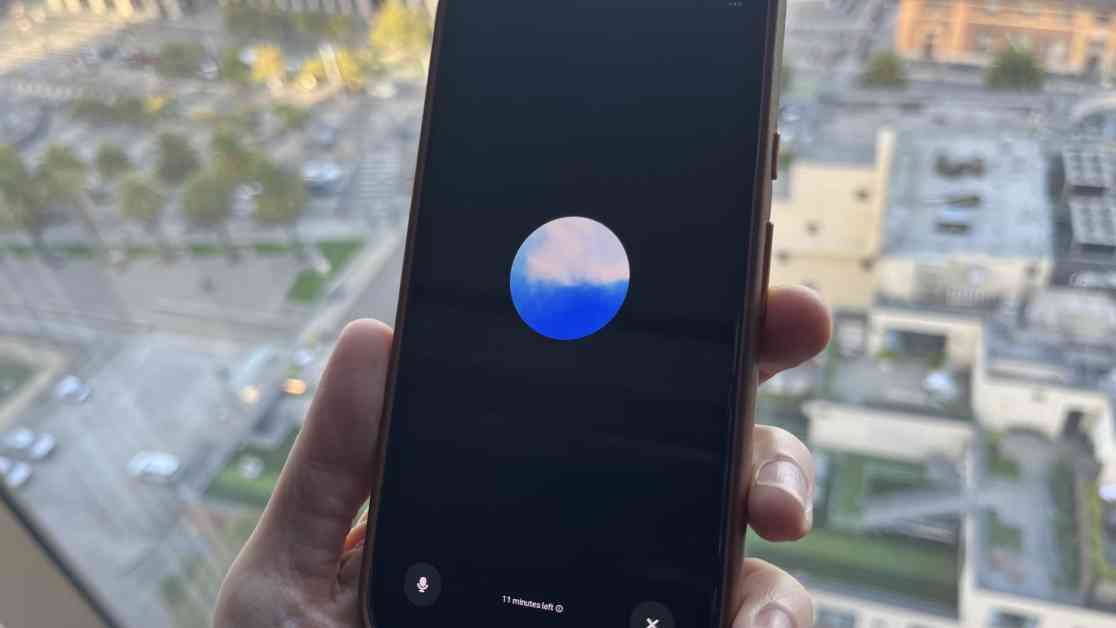OpenAI has recently introduced an advanced voice mode for audio chats with its popular chatbot, ChatGPT. This new feature allows for more natural and fluid conversations, making the user experience more interactive and engaging. The rollout of the advanced voice mode is currently ongoing, with the company stating that it will continue throughout the week. It is important to note that this feature is currently not available in EU countries, Iceland, Liechtenstein, Norway, Switzerland, or the U.K.
The announcement of the new capability came in May, generating significant attention due to the introduction of a voice called Sky that bore a striking resemblance to Scarlett Johansson’s voice in the movie “Her” from 2013. However, legal concerns arose when Johansson’s representatives claimed that OpenAI did not have the right to use a near-identical voice without permission. As a result, OpenAI decided to pause the use of the Sky voice in its products, as reported by CNBC.
In response to user demand, OpenAI has allowed users to configure ChatGPT to interact with them using different voices through a free tier. The advanced voice mode, available to users with Plus, Team, or Enterprise subscriptions, offers quicker responses and the ability to pause and listen if the user interrupts the conversation. With nine voices to choose from, users can customize their voice chats by entering instructions in the app’s settings under Customizations.
OpenAI’s co-founder and CEO, Sam Altman, expressed excitement about the new feature, stating, “Hope you think it was worth the wait.” The company faces increasing competition in the generative AI chatbot market, with Google recently launching its Gemini Live voice feature on Android devices, and Meta set to introduce celebrity voices on its platforms in the near future.
For those interested in using the advanced voice mode, the process is straightforward. After ensuring that you have the latest version of the ChatGPT app on your device, OpenAI will notify you within the app once access to the new feature has been granted. By creating a new chat and selecting ChatGPT, users can activate the advanced voice mode by tapping the sound wave icon next to the message field and ensuring that their sound is on. Upon speaking, users will receive a prompt response, although some audio disruptions may occur.
OpenAI has made improvements to accents in foreign languages and increased the speed of conversations in the advanced voice mode. Users can also request ChatGPT to speak differently, such as speeding up or incorporating a specific accent. The possibilities with this new feature are endless, from bedtime stories to job interview preparation and language practice.
Despite the exciting capabilities of the advanced voice mode, users with subscriptions should be aware of the time limit imposed on its usage. After approximately thirty minutes of usage, a notification indicating “15 minutes left” will appear on the screen. OpenAI has yet to provide specific details about this time limit, but it is essential for users to manage their time effectively while utilizing the advanced voice mode.
In conclusion, OpenAI’s advanced voice mode for audio chats with ChatGPT represents a significant advancement in the field of AI technology. By offering more natural and interactive conversations, this feature enhances the user experience and opens up new possibilities for communication and engagement. As OpenAI continues to innovate and improve its products, users can look forward to further developments in the world of AI-powered chatbots.






















